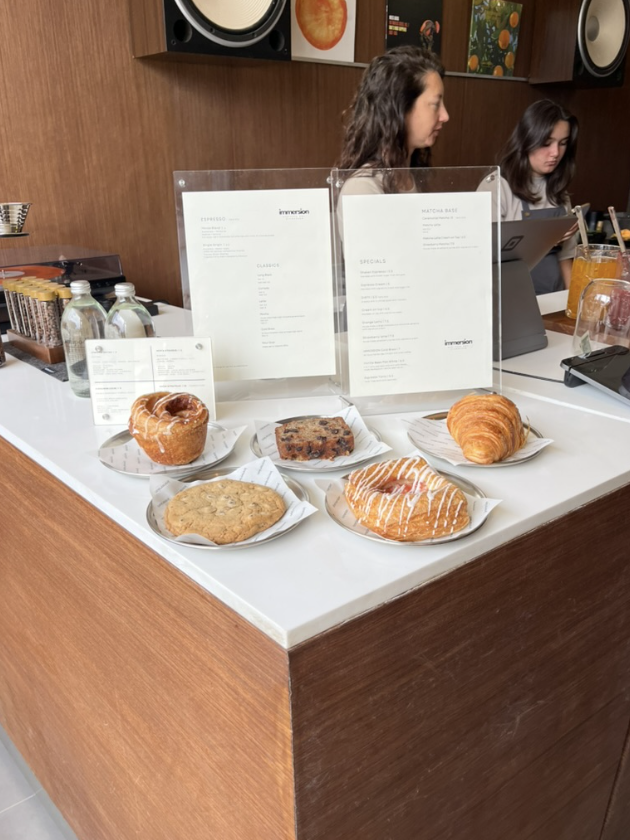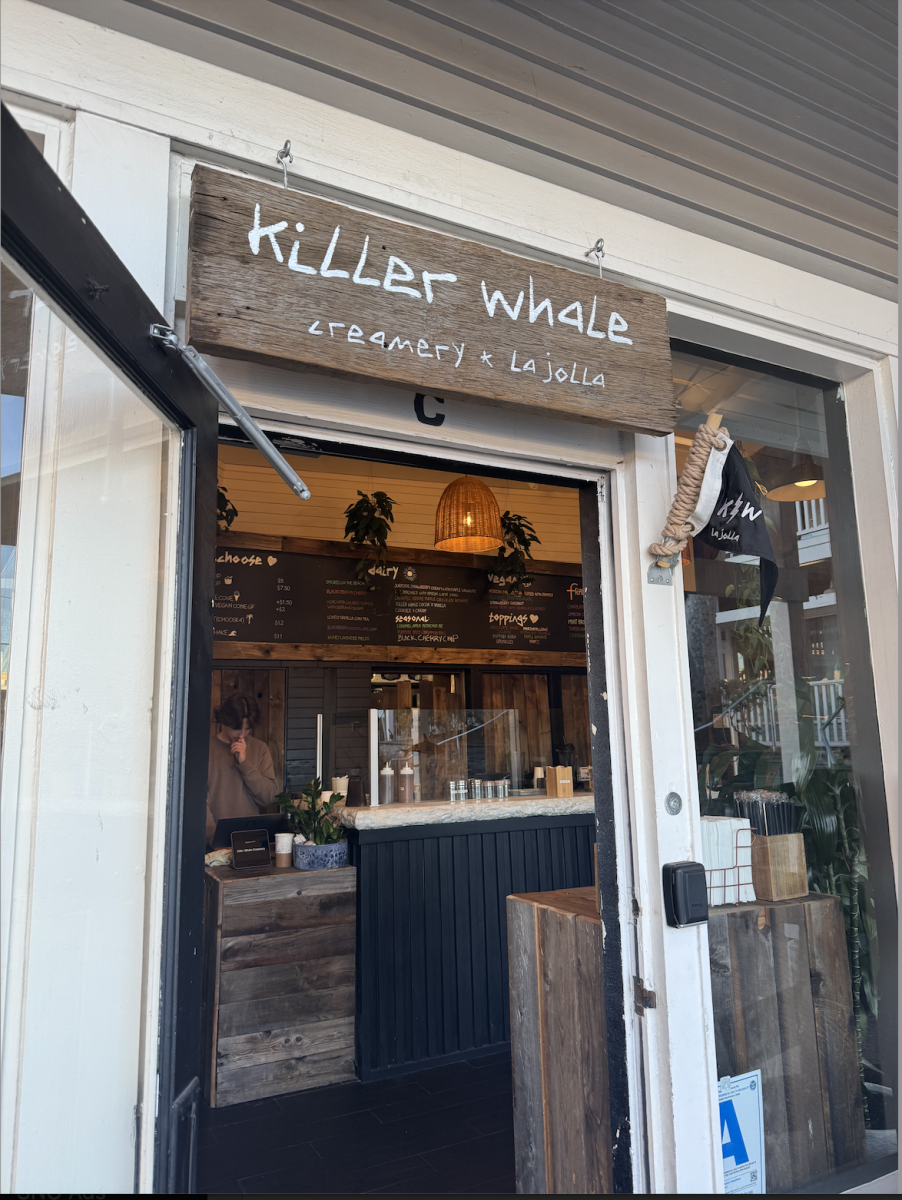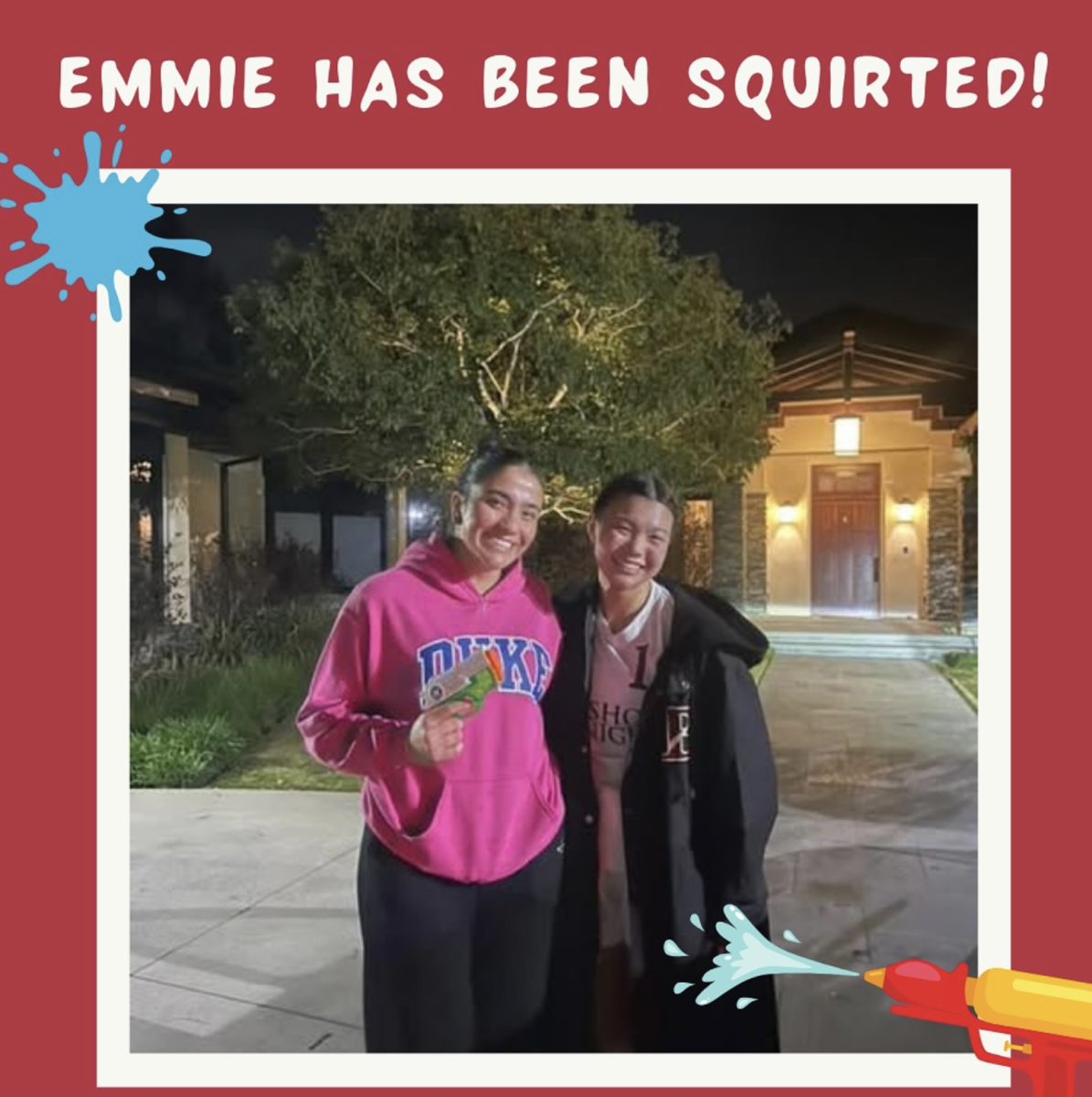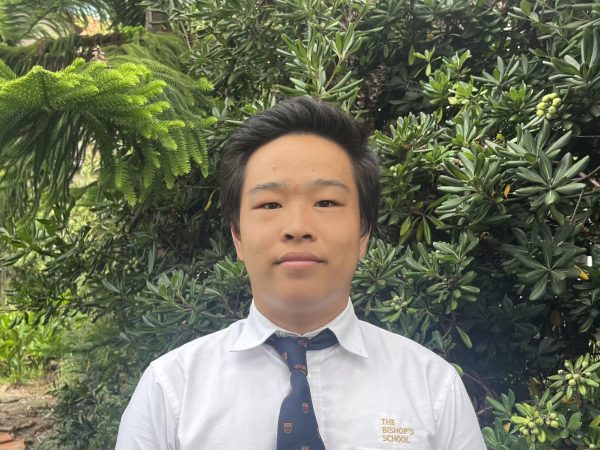Gender Studies, Social Psychology, International Relations, Macroeconomics, and Medical Problem-Solving all span different subjects, but the one thing they have in common is: they are all unique courses offered at Global Online Academy (GOA). GOA is a non-profit organization that “reimagines learning to empower students and educators to thrive in a globally networked society.”
Through GOA, many Bishop’s students can “dig into a variety of niche elective topics that most schools, including ours, aren’t able to offer,” said Chair of the History and Social Sciences Department and Site Director of Global Online Academy Ms. Karri Woods. Ms. Woods has been Bishop’s site director for GOA since 2020. These students and Ms. Woods, who taught Gender Studies for GOA from 2015-2020, shared their experiences with GOA.
Ms. Woods’ role as a site director is to serve as a liaison between GOA and Bishop’s. She also advises students on what courses they should pursue, helps them through enrollment, answers any questions, and talks with students who are behind or not completing work to help them get back on track.
Bishop’s offers GOA courses because “developing 21st-century skills and supporting academic excellence aligns with some of our curricular goals as a school,” said Assistant Head of School for Curriculum and Academics Mr. Brian Ogden.
Marly Berlin (‘26), who is taking Social Psychology, agreed with this sentiment, “It’s been really eye-opening, I feel like I’ve learned so much about little details about social interactions, like psychology through a social lens.”
Teaching Gender Studies for GOA was a valuable professional growth opportunity and a unique teaching environment for Ms. Woods. “It was exciting to help build GOA’s gender studies course alongside Kim Banion, who teaches English at the Pembroke School in Kansas City,” she said.
Mr. Ogden also mentioned that “GOA offers wonderful professional growth opportunities for our [Bishop’s] faculty who are interested in advancing their own pedagogy.”
Ms. Woods shared “Each semester, I worked with a cohort of students who lived in various locations around the world. In most cases, each student in the class attended a different school, and about a third of them lived overseas. This allowed us to take a more global approach to exploring the interplay between gender and society. Since the course primarily centered on group discussions and projects, there were several opportunities for students to explore and share about specific issues, perspectives, and questions that they were observing in their respective communities.”
In addition, students also noticed the numerous countries their classmates were currently living in. Parsa Avaz-Barandish (‘27), who took International Relations first semester and is currently taking Macroeconomics said that working with classmates worldwide taught him time management, communication, and organization. He said he has had classmates “from Qatar, Japan, and a couple of people from Canada” and his “Macroeconomics teacher is in Japan, which has made timing hard.” He added, “It is a lot of planning to meet with individual students, for partner projects, and things like that.”
Similarly, Nirvana Shiwmangal (‘25), who took an Introduction to Coding course in the spring of 9th grade, was “really surprised to see so many people from different backgrounds…There was a person from Dubai [and] he was up at 3:00 A.M. on a call.” Discussing the effects of the teacher being in a different time zone, she said, “It was actually kind of funny because I had to make sure all of my scheduling lined up with Eastern Standard Time.”
GOA classes are mostly asynchronous, meaning that “the instructor and the students in the course all engage with the course content at different times and from different locations,” according to the University of Waterloo. However, a few times, students need to meet with one another or as an entire class. Regarding time management due to this style of learning, Marly said, “You are not given a specific class period to take a GOA class so it’s up to you to find the time to complete the assignments.”
However, demonstrating the downsides to asynchronous learning, Sophia Glesson (‘24), who only took a GOA class for a few days before dropping it said, “GOA isn’t on the same schedule as Bishop’s classes, so I had homework every day and it was too much work for me on top of all my other classes while I was auditioning for college conservatories.”
Nirvana, Marly, and Parsa all mentioned that the homework load is similar to the load of one Bishop’s class. Parsa said, “Because of timing with Zoom meetings, a lot of times I end up having to do it outside of school.” Nirvana said that the “homework load was not too bad and manageable…One thing about the class is that you have to be self-motivated and get your work done because no one is really enforcing the due dates.”
Marly noted, “There’s like a misconception going into it that it’s gonna be less work than a Bishop’s class but it really is another class so it gives a lot of work that you have to do on your own time.”
The homework load has not stopped the wonderful experiences students have gotten from their respective GOA classes. Marly thought that her class has been great since her class “just finished a catalyst project which is our final for the year meaning the class won’t overlap with Bishop’s finals.”
Nirvana also said, “I thought it was a really informative class and it helped me figure out my own pathway to taking or doing Computer Science (CS) without having to take a CS class at school that was gonna be worth an actual grade.”
One of the projects Nirvana remembered doing was related to hex codes. She said, “I found that actually very useful because I’m a big Canva person and I love doing graphic design and stuff so the hex codes are a great cheat code for colors and stuff”
One thing that Parsa remembered learning was the six international relations theories. He said, “I didn’t even know what the international relations theories were until I took the class and now that’s what I’m really passionate about.”
Another crucial part of why GOA is amazing is the teachers. Reflecting on his teachers, Parsa said, “First semester, I could tell he really cared and was passionate about international relations and global politics. Second semester is also good but grading-wise, he’s been a little less reasonable.” Nirvana said, “Our teacher was really well informed and knew what he was doing and asked good questions.” Not only did Marly say that her teacher has been great but also, “she’s really understanding and she tries to reach out and check in a lot.”
Reminiscing her experience as a teacher at GOA, Ms. Woods said, “There are several differences between GOA’s approach to learning and assessment and what we do at Bishop’s. It was fun trying something new as a teacher without leaving Bishop’s.” She also said, “Perhaps my favorite takeaway was figuring out how asynchronous discussion boards could be used to host conversations about potentially controversial topics in a way that felt really productive and helpful.”
With wonderful teacher and class experiences, Marly, Nirvana, and Parsa encouraged other students to take it. Parsa said, “I recommend it to people who are very good at communication and keeping their schedules neat and organized.”
Ms. Woods said, “If there’s room in your schedule, GOA has an extensive catalog of topics to investigate in a project-oriented way.” She added, “GOA places a premium on helping students explore the real-life applications of a topic.”
Nirvana said, “I feel like it’s a double-edged sword. I would recommend it but caution students from thinking ‘Oh I’m gonna take this class and it will be smooth sailing’ as you have to really manage your time well.” One life lesson Nirvana learned from GOA was to “take advantage of the opportunities you have on campus and online/off campus because you have yet another opportunity to figure out who you are and explore your passions.”
However, everything is not picture perfect and some people had poor experiences with GOA. One student was Alex Yang (‘27), who took a course on how to formulate good arguments. He said, “I didn’t like my teacher. He wasn’t responsive,[ for example], when I sent him a message with questions, it took him like three days to respond. I didn’t like the course either as I didn’t think it was well formulated and I don’t think I will do it again.”
With GOA being an academic class, the courses have logistical parts. However, Ms. Woods said that “it’s really easy to sign up. Students need to go to their website and look at the course catalog. Once they sign up on the site, I can complete the enrollment process.”
Speaking about the grade part of the course, Ms. Woods said, “Whatever grade you get in your class, it goes on the transcript, but it doesn’t factor into your Bishop’s GPA.” She added, “GOA courses count toward your general graduation credits but not for department-specific requirements.”
Using an example Ms. Woods gave, if you took Gender Studies at GOA, it can contribute toward the total credits required for graduation, however, it doesn’t fulfill the specific requirement of taking three history and social science classes.
In the end, Ms. Woods hopes the students who took a course from GOA learned whether or not “you really love it (the subject of the class), which is good to know, or if your like ‘Oh I didn’t like that, maybe this is something that I don’t think I want to do’, which is also really helpful.”


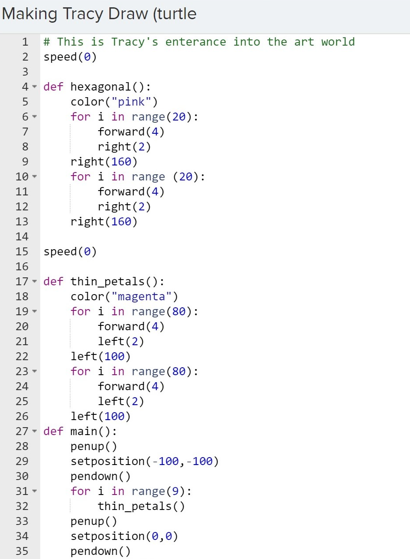

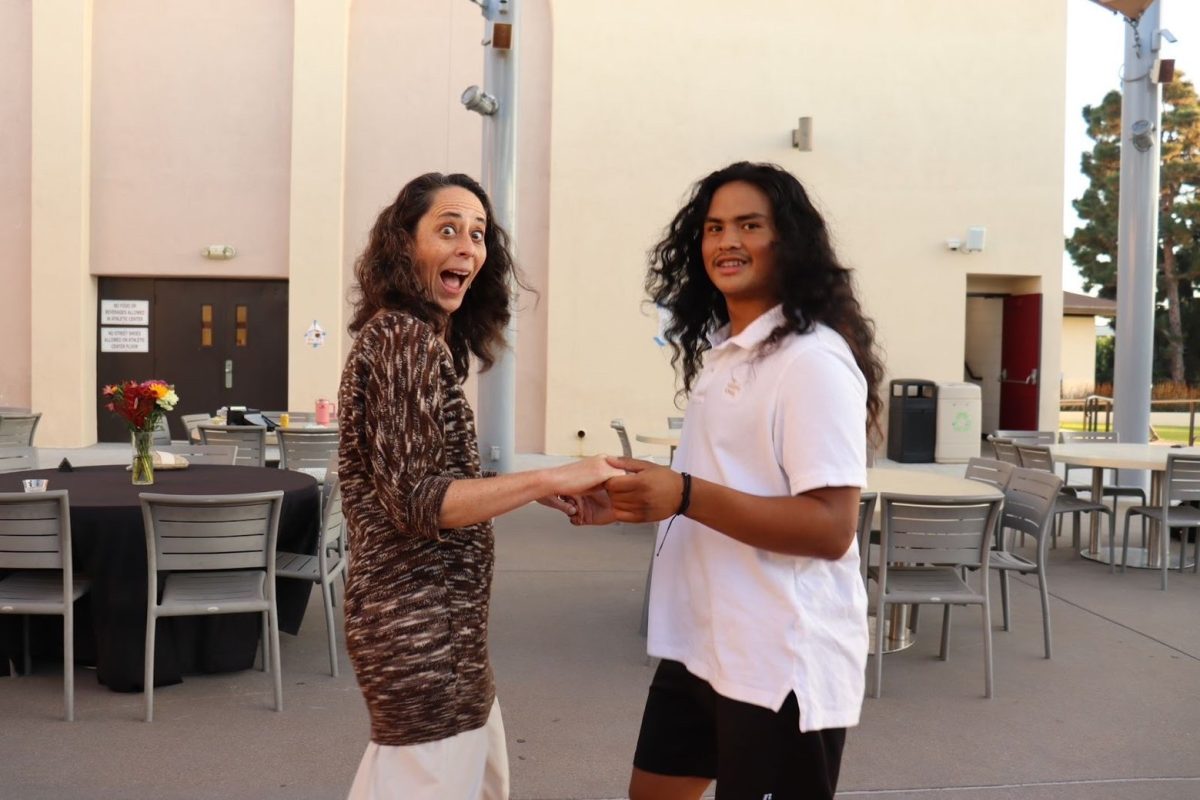
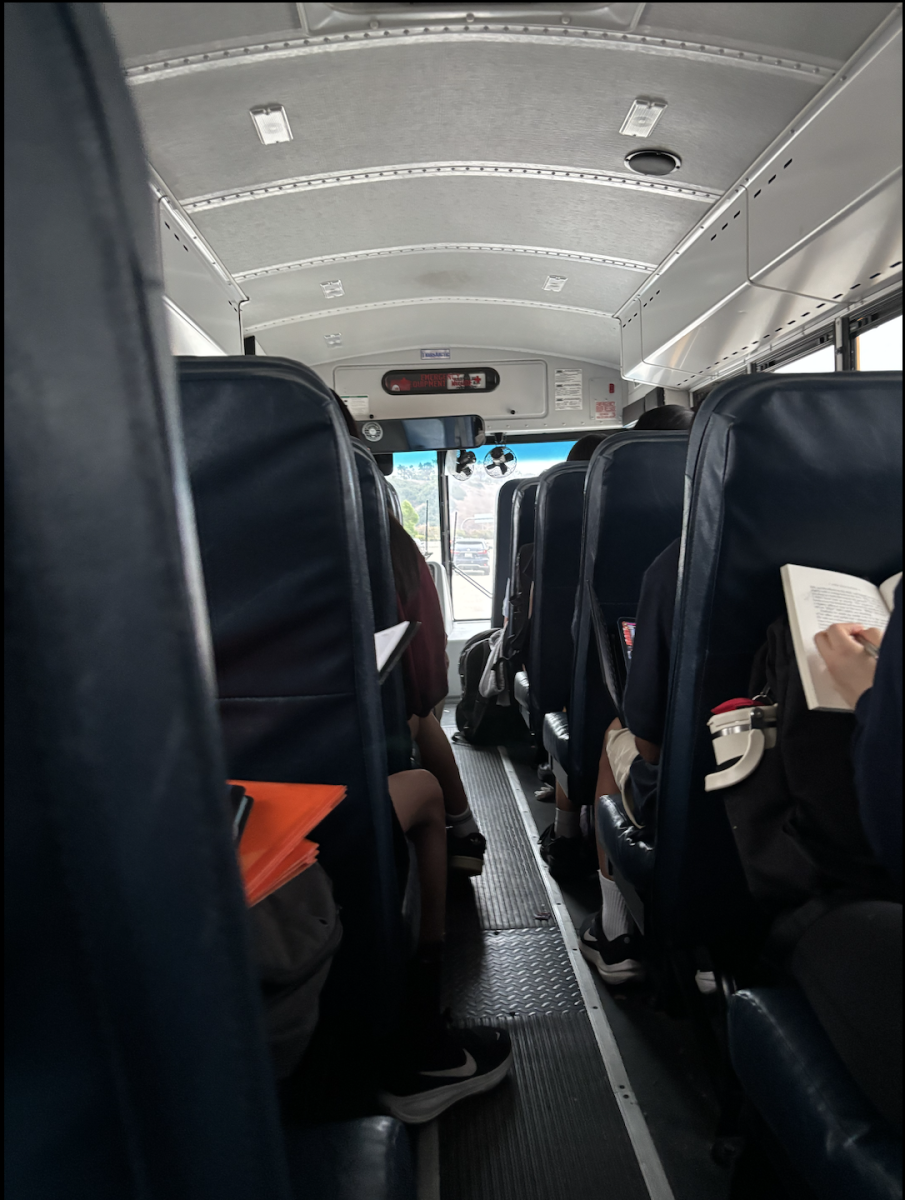
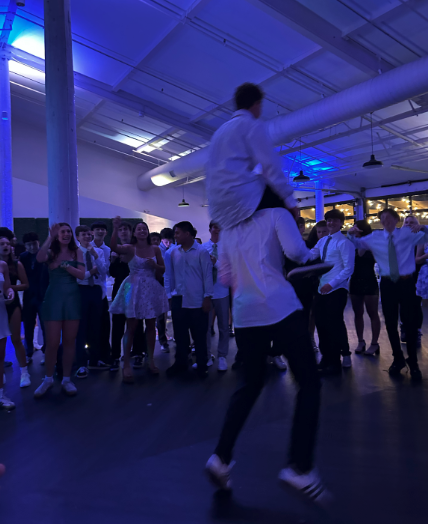
![(from left to right) Nathaniel Hendrickson (‘31), Benjamin Hill (‘31), and Cameron Sibley (‘31) are all smiles as they pet Brady, Ben’s spotted dog, who was blessed. “[Brady] was very excited and happy to be there,” he said.](https://thebishopstower.com/wp-content/uploads/2025/10/Screenshot-2025-10-13-at-8.45.50-AM-1200x899.png)

